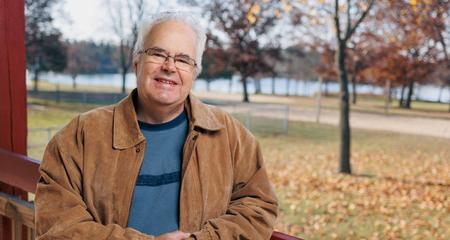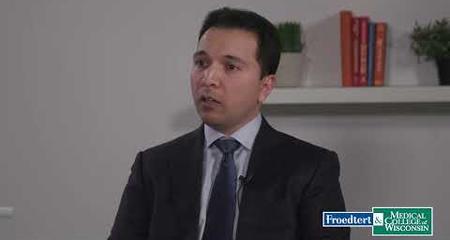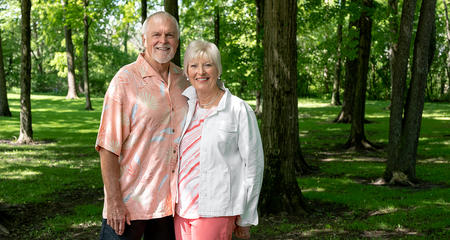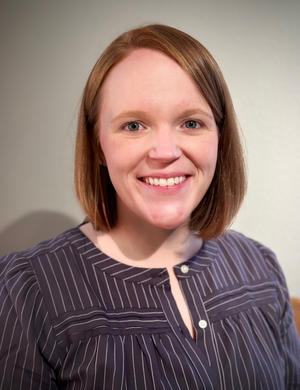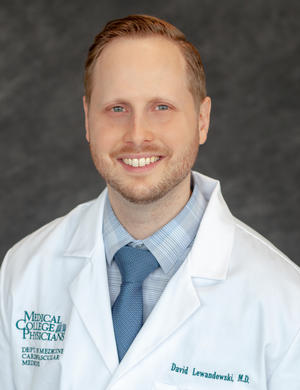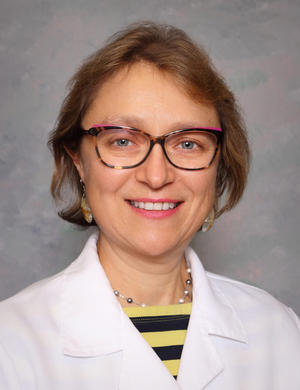With the evolution in the treatment of cancer, more and more people are cancer survivors. While these treatments have improved outcomes for cancer patients, some treatments cause damage to the heart. This is especially true for patients who are already at risk for heart disease prior to undergoing cancer treatment.
We designed the Froedtert & MCW Cardio-Oncology Program to meet the needs of these patients and for patients who are found to be at high risk for cardiovascular disease during cancer screening or evaluation.
Our program provides the full range of services, including:
- Evaluation for and risk-reduction planning for cardiovascular disease before cancer treatment
- Coordination of a cancer regimen that reduces cardiovascular risk during treatment
- Monitoring cardiovascular health for changes during and after treatment
- Advanced treatments for heart issues that may occur during, or years after, cancer treatment
Team Approach
Our Cardio-Oncology Program brings together a multidisciplinary team of specialists from cardiology, cardiac imaging, cardiothoracic surgery, hematology, medical oncology and radiation oncology. These experts work together to minimize the effects of your current or past cancer treatment on your cardiovascular health.
Care plans may involve diagnostic testing, medication management and interventional and surgical procedures for patients, if it is possible to include these elements without changing or interrupting your cancer treatment regimen.
Treatments Designed Around You
No two patients are the same. That’s why our team takes a personalized approach when considering the optimal plan for you, including identifying your risk for heart disease even before you start cancer treatment.
To identify your risk and develop a treatment plan, our team reviews your medical history and may perform diagnostic testing on your heart, including stress tests and imaging. We have access to the latest, non-invasive diagnostic technology including 3D echocardiograms and cardiac MRI, which often eliminates the need for invasive diagnostic procedures.
If surgical care is needed, you will be in the hands of one of the most experienced cardiac surgery teams in the Midwest. Our cardiac surgery team provides patients from across the region with the latest cardiovascular treatments, including non-invasive treatments for valve disease, arrhythmia and heart failure.
Care Before, During and After Cancer Treatment
In addition to working with patients to identify cardiovascular risk before cancer treatment, we partner with patients who are currently receiving cancer treatment or those who had undergone treatment for cancer in the past. Through diagnostic imaging, our team can detect abnormalities in the heart and track any changes during or after treatment. This includes monitoring side effects that can occur from chemotherapy or radiation therapy during or years after treatment.
By tracking changes in your heart’s health during and after treatment, our team can more quickly identify concerns and provide treatment recommendations before problems progress.
Advancing Care Through Research
As part of an academic medical center, we are continuously involved in cutting-edge cardio-oncology research to develop new methods for identifying patients at increased risk of developing cardiac events and researching strategies to decrease cardiac risk during cancer care.
Our cardio-oncology research program is multi-faceted and includes basic science, translational, clinical and population health components, with collaborative innovation that includes artificial intelligence and machine learning. Learn more about cardiovascular research.
The Society for Vascular Surgery's Vascular Quality Initiative (SVS VQI) has awarded Froedtert Hospital three out of three stars for its active participation in the Registry Participation Program. The mission of the SVS VQI is to improve patient safety and the quality of vascular care delivery by providing web-based collection, aggregation and analysis of clinical data submitted in registry format for all patients undergoing specific vascular treatments. The VQI operates 14 vascular registries.
Blogs, Patient Stories, Videos and Classes


